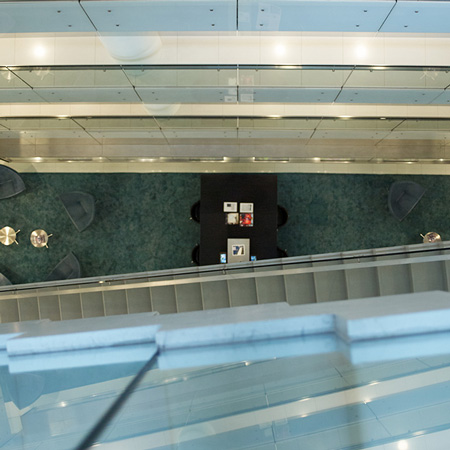
News Update Competition
EU FDI screening: Are Member States getting more critical?
9 September 2022
On 1 September 2022, the European Commission ("EC") published its second annual report on the screening of Foreign Direct Investments ("FDI") into the EU. The report describes trends and developments in EU Member States and assesses cooperation under the EU mechanism. In this update, we briefly discuss key developments reflected in the report.
BACKGROUND
In March 2019, the EU Regulation establishing a framework for the screening of FDI into the Union (2019/452) ("FDI Regulation") was adopted. The FDI Regulation introduced harmonisation for national FDI screening mechanisms which entered into force on 11 October 2020 (see our 3 June 2019 News Update). Member States are obliged to provide the EC with an annual report which describes whether they applied FDI screening and specifies any requests that other Member States made under the cooperation mechanism. The EC’s annual report is an overview of the information obtained from the Member States. See our 29 November 2021 News Update on the first annual report.KEY DEVELOPMENTS
All but two EU Member States (Bulgaria and Cyprus) now have screening mechanisms in place or are in the process of establishing them. During the reporting period, Member States:- adopted a new national FDI screening mechanism (Czechia, Denmark and Slovakia);
- amended an existing mechanism (France, Germany, Hungary, Italy, Latvia and Lithuania); or
- initiated a consultative or legislative process to adopt a new mechanism or amendments to an existing one (Netherlands, Romania, Belgium, Croatia, Estonia, Greece, Ireland, Luxembourg and Sweden).
Member States' screening activities
Member States reported 1,563 requests for authorisation in 2021, considerably less than the 1,793 requests in 2020. Of the applications received, 71% did not require formal screening and were swiftly informally approved. The proportion of formally screened cases increased from 20% in 2020 to 29% in 2021.
Out of the cases formally screened in 2021, the majority (73%) were approved without conditions (79% in 2020), 23% were approved with remedies (12% in 2020), and 1% of the transactions were prohibited (2% in 2020). The parties withdrew 3% of the transactions.
Cooperation mechanism
In 2021, a total of 414 notifications were submitted by 13 Member States under the cooperation mechanism in the FDI Regulation (compared to 265 in 2020). Austria, France, Germany, Italy and Spain submitted 85% of those notifications.
Some interesting statistics on the cooperation mechanism:
- Manufacturing accounts for the biggest portion of cases (44%), predominantly in the areas of defence, aerospace, energy, health and semiconductor equipment. The information and communications technologies sector accounts for 32% of the cases.
- The EC swiftly completed the assessment of FDI transactions notified by Member States: 86% were closed in just 15 calendar days in Phase 1, and 11% were closed in Phase 2. Less than 3% of these cases resulted in a Commission opinion. The duration of Phase 2 varied significantly due to the diverse information requests. The average period for Member States to provide the requested information was 22 calendar days with a range from 3 to 101 days.
- The top five countries of residence of ultimate investors are the US, the UK, China, the Cayman Islands and Canada. Russia accounted for less than 1.5% of the cases and Belarus for 0.2%
- In 2021, the EC did not use its power to notify a transaction to EU Member States ex officio under Article 7 FDI Regulation.
Developments in the Netherlands
On 17 May 2022, the Investment Screening Bill (Wet Veiligheidstoets investeringen, fusies en overnames, "ISB") was adopted by the Dutch Senate. This bill introduces a general FDI screening mechanism and concerns acquisitions and investments in sensitive technology and sectors that are considered critical for national security and public policy. Recently, the Ministry of Economic Affairs and Climate Policy and the Ministry of Defence conducted consultation regarding two draft orders in council. These specify the scope of the FDI screening in the sensitive technologies category and clarify the procedural aspects of the FDI notification (see our 11 August 2022 News Update). The Dutch government expects the ISB to enter into force on 1 January 2023 at the earliest.
In addition to this general investment mechanism, the telecommunications and energy sectors already have their own sectoral rules in place. To find out more about the relevant rules and regulations, read our ICLG publication.
CONCLUSION
Although the number of transactions by target EU country showed a widespread rebound in the number of FDI transactions in 2021 compared to 2020, the number of FDI cases assessed by the Member States decreased in comparison to 2020. This may indicate that the investors have a better understanding of when a transaction falls within the FDI scope but could also mean that investors are not attempting certain transactions because of the increased risk of prohibitions. Simultaneously, the proportion of formally screened cases has increased, just as the number of cases that were eventually approved with remedies. This may indicate a stricter approach by the Member States.The second FDI report shows that transactions notified under the cooperation mechanism can entail significant delays. This is particularly the case for Phase 2 investigations, where information requests from EU Member States caused delays ranging from 3 to 101 days. Formulating a good strategy for FDI screening therefore remains vital to avoid surprises and unnecessary delays in transactions.
Written by:





